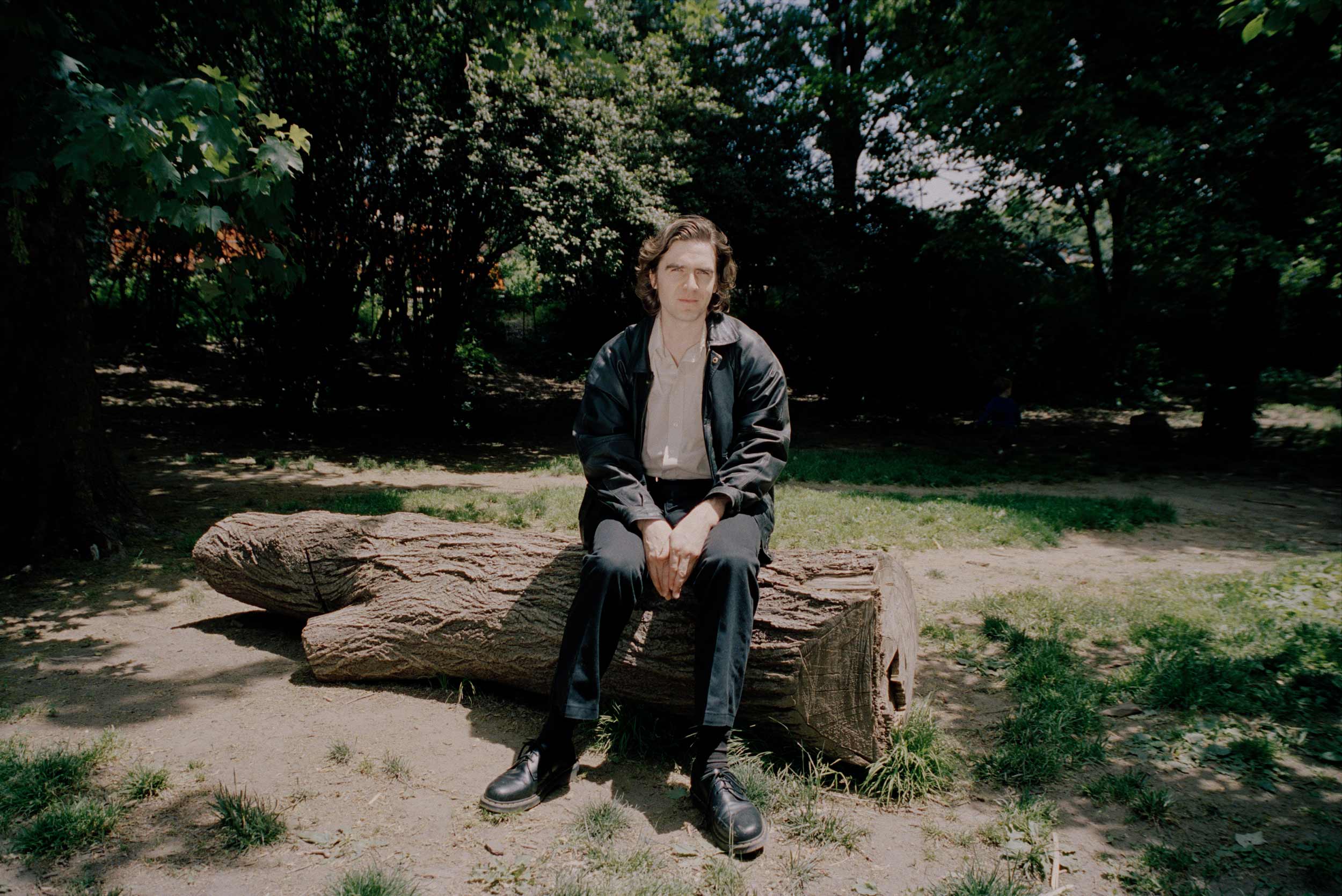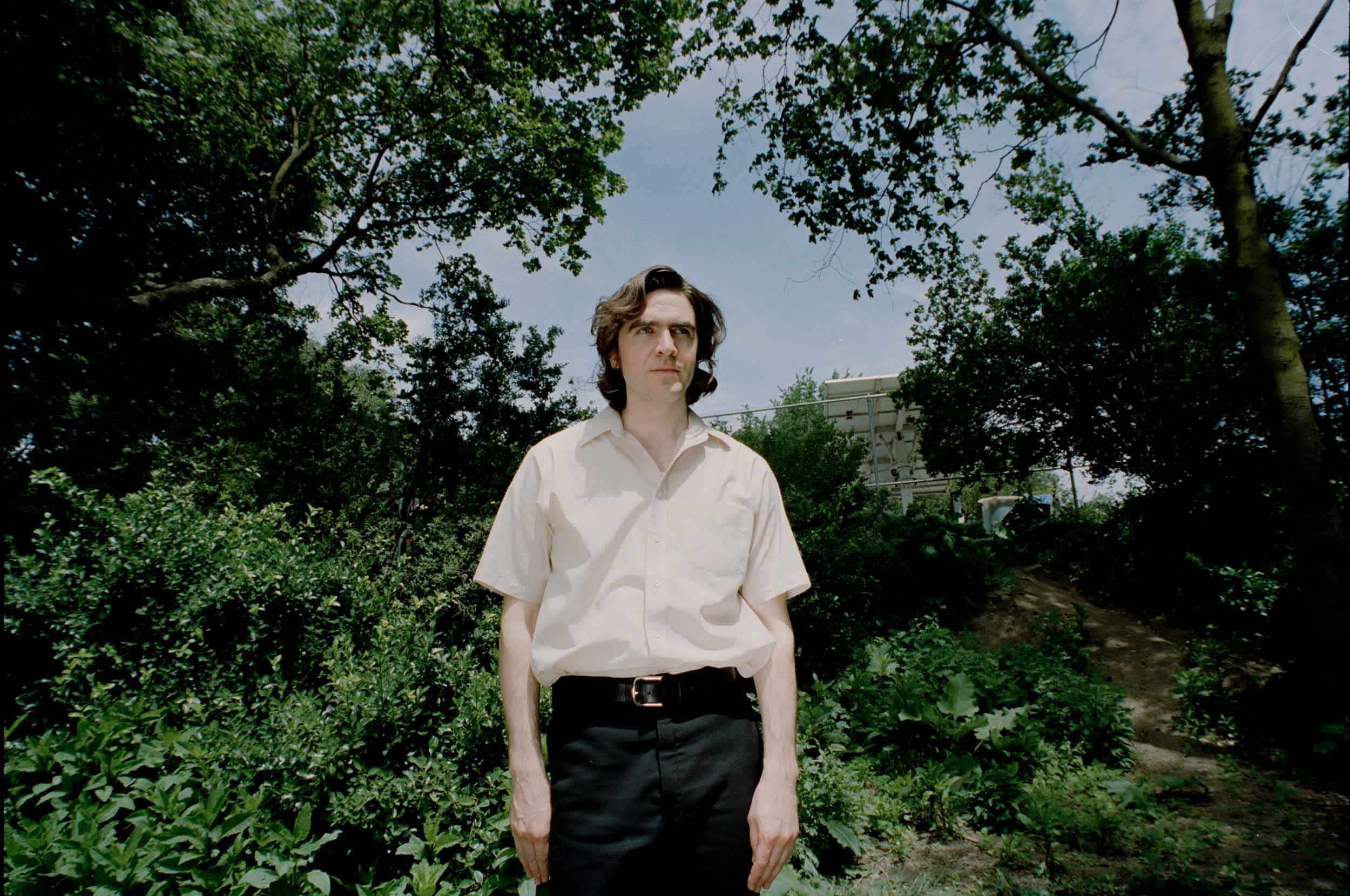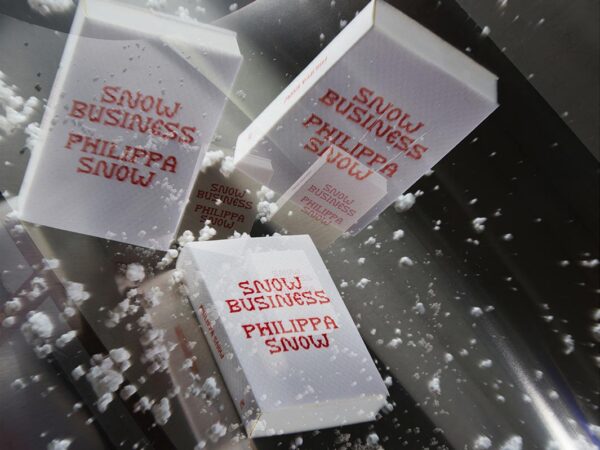Ahead of the release of his self-titled record, Max Clarke joins Document to examine his fear of aging and his desire to bear the legacy of pop appeal
On the second night of Cut Worms’s Union Pool residency, a sprinkling of men over 60 fell into the crowd of expected twenty and thirtysomething indie fiends. They seemed—amid a sea of bobbing shullets and knit hats—the most visibly moved by the music: one individual, with his right hand propped side-stage, the left not breaking from his heart; another, eyes closed, hands rapping ardently in rhythm with the drums on his thigh; a third, standing rigidly in a way that suggested disinterest, but was actually the result of deep concentration, shoddily mouthing along the words to choruses of unreleased songs, learning them in real-time, and experiencing their effects just as quickly.
The cross-generational appeal of Cut Worms makes a lot of sense. On his latest release, the man behind the music, Max Clarke, applies the warmth of ’60s rock onto present-day productional effects. With arrangements that seamlessly translate to a live show, the tracks carry an aura of ease that fosters an intimacy with the audience. The music is written to be performed, with tempting pop melodies that are best experienced in a crowded room; it’s written for the road, lyrically following Clarke across states he’s called home; and it’s written without regards to time, instead indulging in different eras of the artist’s life and embodying all of their musical, cultural, and personal influences.
The self-titled record is maybe most varied in the stories it tells, spanning sweet school dance serenades (“Somebody else could say all these things, / Well, that’s true… / But they just never could mean ‘em / the way that I do”), moody murder ballads (“Step on inside that long black car… / Show you the meaning of hell / Boy, just let me tell you, that’s where you are”), and philosophical strains. (“My garden’s all been paved / Turned a sad and barren waste and now / Nothing’s growing / And I can’t see where I’m going.”)
Ahead of the July 21 release of Cut Worms, Clarke joins Document to examine his fear of aging and his desire to bear the legacy of pop appeal.
Megan Hullander: Did you have a clear concept going into the album as to what you wanted to do thematically?
Max Clarke: I wasn’t really thinking about it in those terms. Even by the end of recording, I was having a pretty hard time figuring out what I was supposed to make of it as a whole. Ultimately, that’s why it’s self-titled and not some concept piece. Not every album has to be concept-driven, the way that people usually do them nowadays; it can feel like you have to make this whole, cohesive narrative around it. I hate when I see an artist release something after it’s been a few years, and it’s just a public therapy session.
Megan: If not for therapizing, where do you derive pleasure from music-making?
Max: I don’t know—it is a selfish thing. My favorite thing to do is to come up with a new melody that gets at the heart of a feeling, and then try to make words from that. I think I’m just trying to entertain myself. I mainly [make music] for me, because I like doing it. I just hope that other people like it.
And I am conscious of aging, so I feel like I need to do it now.
Megan: How old are you?
Max: I’m 32.
Megan: That seems too young to be worried. Don’t you think, with time, your music might be able to go places it can’t yet, because you are older?
Max: I’ve always wanted it to be as successful as it could be, and it just wasn’t—I had to have another source of income. I would have loved to have been an overnight success when I was 21, but it just didn’t happen. With music, there’s a cult of the young and sexy; it’s a model that has been reset since probably the ’50s. I feel like that is changing a bit now.
But I have a fear of running out of time when I’m physically able to sing a certain way, or do a certain thing. Maybe when I’m 60 or something, I’ll have to sing lower and do country songs or folk songs—like [Leonard] Cohen or [Bob] Dylan. You have to find a way to keep reinventing what you’re doing to suit your aging vessel.
“I was having a pretty hard time figuring out what I was supposed to make of it as a whole. Ultimately, that’s why it’s self-titled and not some concept piece.”
Megan: Bob Dylan is a good example of this: I feel that music—more so, maybe, than other art forms—encourages an explicit adoption of a persona that’s taken on. Are there ways that you consciously do that?
Max: I would say it’s fairly separate. Typically, when I’m writing, it’s not, like, diary-entry songs about the life of Max Clarke. But there’s personal stuff in there, and I think there’s something less constricting about having a group, or a project name, or an alternate persona that can encompass whatever it is that I’m trying to go after. My partner does film and writing and directing, and I’ve started thinking about it in those terms: With cinema, you have your script, and then you have your actors and everything else. With music, you’re doing all of the storytelling—I have to be the writer and the actor and the everything.
Megan: The writing feels adjacent to folk music in its style of storytelling.
Max: There’s definitely folk influence in there, in terms of the narrative structures, but I’m not consciously referencing things. I was listening to a lot of early Beach Boys the last couple of years, and in the harmonies, [they are] sort of referencing Brian Wilson. But I try not to be too explicitly referential to any one thing.
Megan: Are you becoming more self-referential as you develop a substantial back catalog? How much do you consider whether new music will fit with the old?
Max: I guess [the music] has sort of developed in the way that I expected and wanted it to. On the last record, I ventured a bit into what people designated as Americana, which I never really had any interest in. There’s always been a country influence in my stuff, but I’ve never been all that inspired by what is now [considered] Americana music.
I really just try to not repeat myself, if at all possible. If I’m getting down on myself, it’s usually because I feel like I’m just rehashing something I’ve already done.
Megan: What about it do you think reads as Americana, if you feel so detached from that genre otherwise?
Max: It’s just surface-level stuff: ‘It has an acoustic guitar.’ I’m not totally against it. But I look at songs and songwriting in terms of melody and structure, whereas I feel like a lot of people who listen to music rather than make it maybe identify things more so in terms of whether it has electric guitars or acoustic, or the way that it’s produced. I could arrange my songs in a different genre and people would perceive them in a completely different way. I’ve toyed around with the idea of doing that—and maybe I still will—but, tonally, the sounds that I end up choosing or the sounds that I like end up sounding like old rock and roll.
“With cinema, you have your script, and then you have your actors and everything else. With music, you’re doing all of the storytelling—I have to be the writer and the actor and the everything.”
Megan: I’m curious about how that maybe fits into the concept of pop-essentialism you’ve referenced. What does that mean?
Max: I see myself within a tradition of people writing songs over the past hundred years, or more, in terms of what makes a pop song: It’s a verse and a chorus, a hook—things different kinds of music all had, whether it’s blues song from the ’20s, or big band swing, or ’60s and ’70s punk or new wave. It’s all basically the same thing—these essential elements that make up a song. I guess it’s not wanting to be defined by the immediate aesthetic of what it sounds [like].
In my mind, [what defines pop] is a melody that you can hum or whistle, a recognizable hook that moves you emotionally. And then, some sort of story to go with it. With a good song, you can do it any way you want to, and it could appeal to different people. There’s a root in there that makes it connect with people for whatever reason. Maybe it’s a mystery—I want to find it.



























